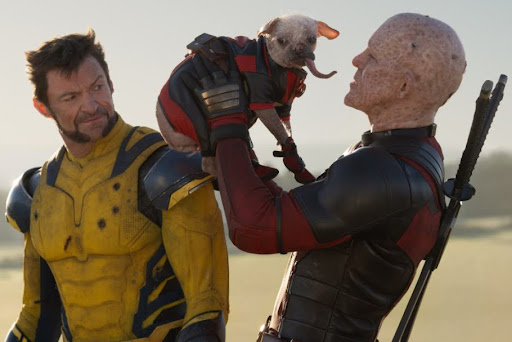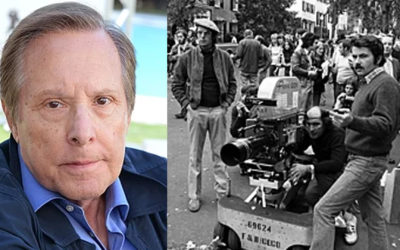Source: Variety
What was once the most prosperous franchise in all of Hollywood is now… still the most prosperous franchise in all of Hollywood, though as of lately, not all of its releases have been surefire hits. Since its origins in 2008, the Marvel Cinematic Universe (MCU) has continuously put out a string of superhero features all designed to tie together in one cohesive storyline, a strategy that has proven beneficial throughout most of its existence (enough for the series in its entirety to just recently cross the $30 billion mark), but may have lost a bit of steam over the past few years. Given the overwhelming critical and commercial success of 2019’s “Avengers: Endgame”, regarded by many as the grand finale of the series’ first major storyline, it’s not too surprising that subsequent efforts, though mostly well received, have struggled to recapture the magic that those earlier films pulled off so well. This is not to say that these films aren’t still making money; “Guardians of the Galaxy: Vol. 3” and “Doctor Strange in the Multiverse of Madness” were each able to pull in well over $800 million, but while the latter was just a few tens of millions away from the highly coveted billion dollar mark, only “Spider-Man: No Way Home”, a collaboration with Sony (a rival distributor to Marvel’s parent company Disney) has been able to surpass that point in the time since “Endgame”.
Then, of course, there are the underperforming films, some of which were affected by the outbreak of the COVID-19 pandemic in 2020 (“Black Widow” and “Eternals” are perhaps the most notable MCU films to take a major hit from being delayed as a result of nationwide theater closures) while others could not quite as easily fall back on such an excuse. The year 2023 was a particularly disappointing year for Marvel’s cinematic output (if not that of Disney in general); although the aforementioned “Guardians of the Galaxy: Vol. 3” performed well enough, the earlier-released “Ant-Man and the Wasp: Quantumania” fell sharply down the box office charts after a fairly solid opening weekend, while the later-released “The Marvels” failed to take off and became the franchise’s first outright bomb. While some could argue that the recent WGA and SAG-AFTRA strikes made it difficult to properly market that film, others have pointed to a general sense of superhero fatigue among filmgoers, many of whom seem to be growing tired with the excessive amount of comic book-based media being made on a yearly basis. If this is truly the case, then it has at least encouraged Marvel to slow down a little bit. In fact, this year, Marvel has decided to only bring one feature film to the big screen; that film just came out this past weekend, and thankfully, it appears that the numbers it’s pulling are more than enough to keep Marvel going for at least a little bit longer. The craziest part of this whole ordeal: the film in question is “Deadpool & Wolverine”, a feature that’s truly unlike anything seen in the MCU up to that point, and not necessarily in ways that would normally be the most desirable.
For starters, this film’s titular characters, or at least the incarnations shown throughout, are not indigenous to the Marvel Cinematic Universe, but rather the X-Men series that began in 2000 under the distribution of 20th Century Fox. It was Disney’s purchase of the latter company in 2019 that finally allowed Marvel to take back the film rights to the X-Men, meaning that the two fan favorite characters, Ryan Reynolds’ Deadpool and Hugh Jackman’s Wolverine, could be used however Marvel wanted to use them. Other X-Men characters have made cameo appearances in some of the more recent MCU releases, but this is the first instance in which Marvel is making this pre-existing series the central focus of its latest cinematic release. Also worth noting: in order to adhere to the content and humor style so many have come to appreciate about the previous “Deadpool” features (the first of which came out in 2016, while its first sequel arrived two years later in 2018), “Deadpool & Wolverine” was designed to be the MCU’s first R-rated feature, as opposed to all the others films being rated a more family-inclusive PG-13. If not for the overwhelming financial success of those two earlier films (the first “Deadpool” made over $782 million during its initial theatrical run, while “Deadpool 2” topped that total with over $785 million), Disney would probably be hesitant to release a film that would discourage younger viewers and their guardians from seeing this newest film. Fortunately, Disney seems to believe that the potential reward is worth the risk, though even it probably didn’t anticipate just how much hype there was for this rather unorthodox release.
As the weekend that began on Friday, July 26th came to a close on Sunday, July 28th, many had observed the box office performance of “Deadpool & Wolverine” being strong enough to take the film past the $200 million dollar mark, with the film ultimately generating around $211 million during the three-day period. Not only does this allow the film to soar past the $154 million opening weekend of “Inside Out 2” (another Disney-distributed release) and have the biggest opening weekend of any film released in 2024 so far, but the gross is high enough to make it the sixth biggest opening weekend of all time, with the two most recent “Avengers” films, “Spider-Man: No Way Home”, and the first two “Star Wars” sequels of the 2010s holding it back from entering the top five. This total, however, only covers the film’s performance at the domestic box office, with worldwide ticket sales bringing its earnings up to $444 million; should the film maintain strong enough legs throughout the next few weeks, it should easily join 2019’s “Joker” to become the second R-rated billion-dollar grosser.
Marvel’s success may have been somewhat undercut by some of its most recent releases, but this doesn’t mean it’s ready to end any time soon, and this most recent weekend just further cemented Marvel’s rock-solid reputation with audiences. Between the announcements made at San Diego Comic-Con, many of which received overwhelmingly positive reactions from fans, and the record-breaking opening weekend achieved by “Deadpool & Wolverine”, the Marvel Cinematic Universe still has several people that continue to look forward to what it has to offer. Should that momentum remain as high as it is, then maybe Marvel’s woes will soon be a thing of the past.




